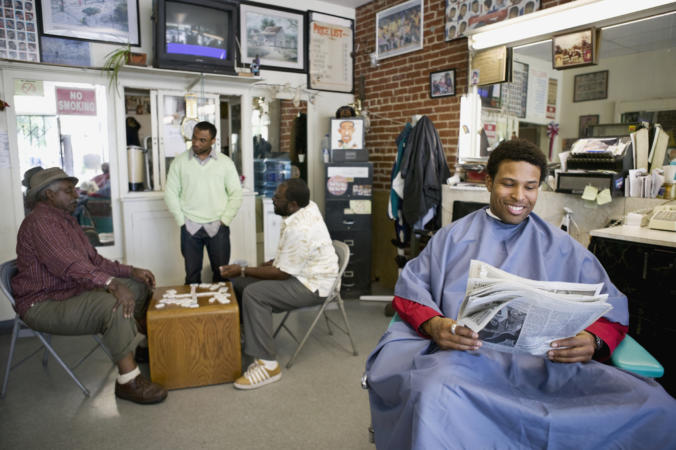For decades, pillars of the Black community like barbershops and salons have contributed more to residents than haircuts and styling. Now, these community staples — that provide customers with therapy sessions, engaging debates, and a sense of safety — are deemed non-essential, closing down indefinitely.
Black barbershops and salons have long been regarded as pivotal spaces in Black culture, always helping to bring the community together. For business purposes, customers go to barbershops and salons for haircare services but they stay for the sense of community and Black entrepreneurship.
For the people that come by to sell their newest incense, fragrances, cosmetics, clothing, and repertoire of other supplies, barbershops and salons allow them to exercise their entrepreneurial spirit. However, with states now implementing shutdowns for all non-essential businesses, they jeopardize all those that conduct business in these community pillars.
My barbershop is closed indefinitely. This is the worst result of #covid19
— Anthony Wheeler (@NAMELESS) March 19, 2020
Additionally, barbershops and salons are considered safe havens in predominantly-Black neighborhoods. It gives customers or even residents of the neighborhood a place to call their second home and congregate with their people.
“You need people to come so they can have some outlet to express themself,” Gerald Louisias Jr., owner of Brooklyn barbershop X-Clusive, told Level. “To share news or something else.”
Social distancing has created too much of a barrier for Black barbershops and salons to continue business as usual, causing them to lose profits. The pandemic is creating a new norm for people to adjust to, but this isn’t a norm people are going to accept easily.
“They’re worried about us losing business and if we’re still gonna be here to give haircuts. Everybody’s concerned. There’s always a bigger picture than what’s going on,” Louisias said.
Although we must remain sensitive to the health crisis we’re experiencing and abide by the new rules put in place for public safety, it doesn’t change the fact that thousands of customers, business owners, barbers, and beauticians are without a space to conduct business and seek the services they need.

